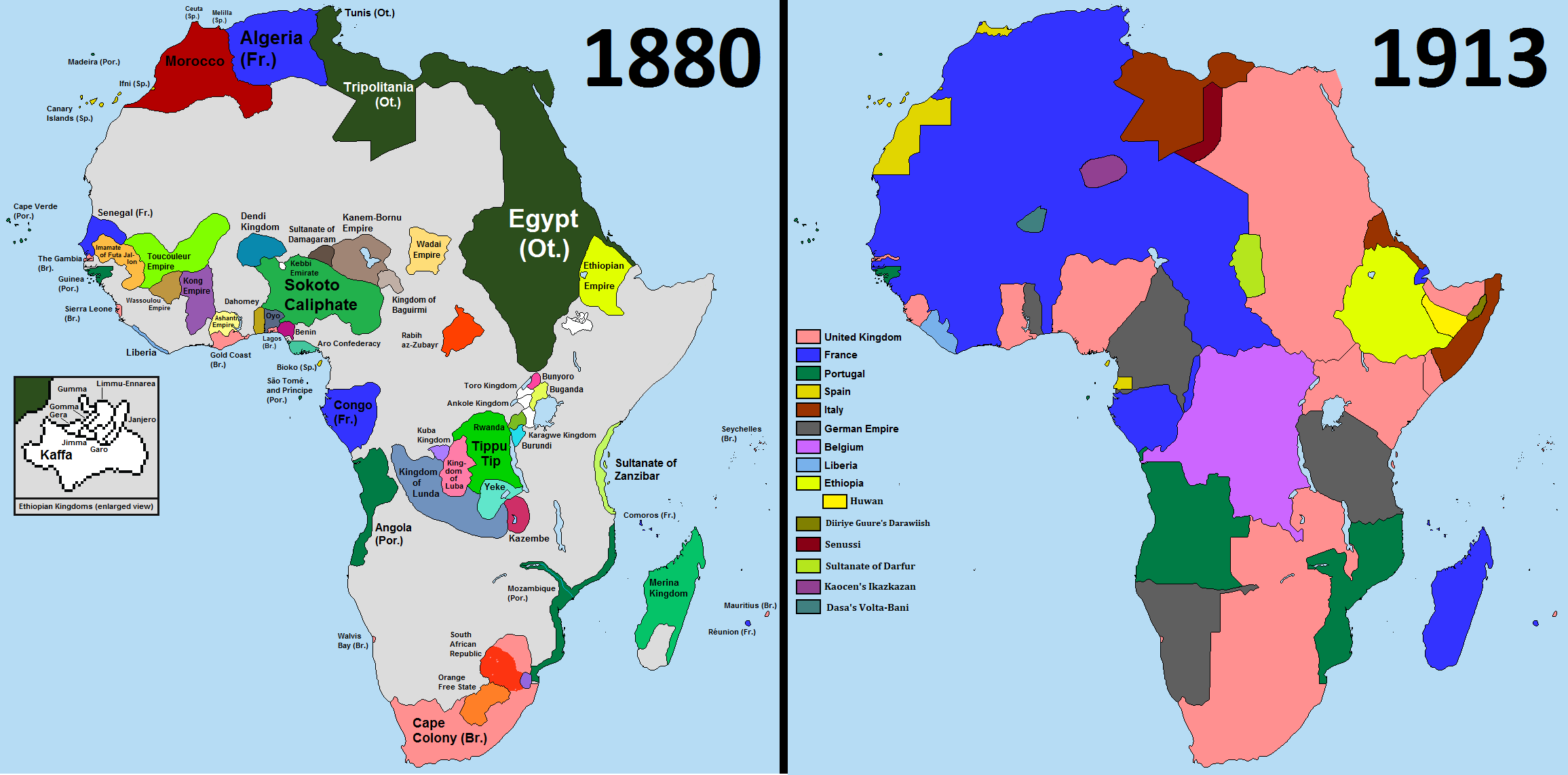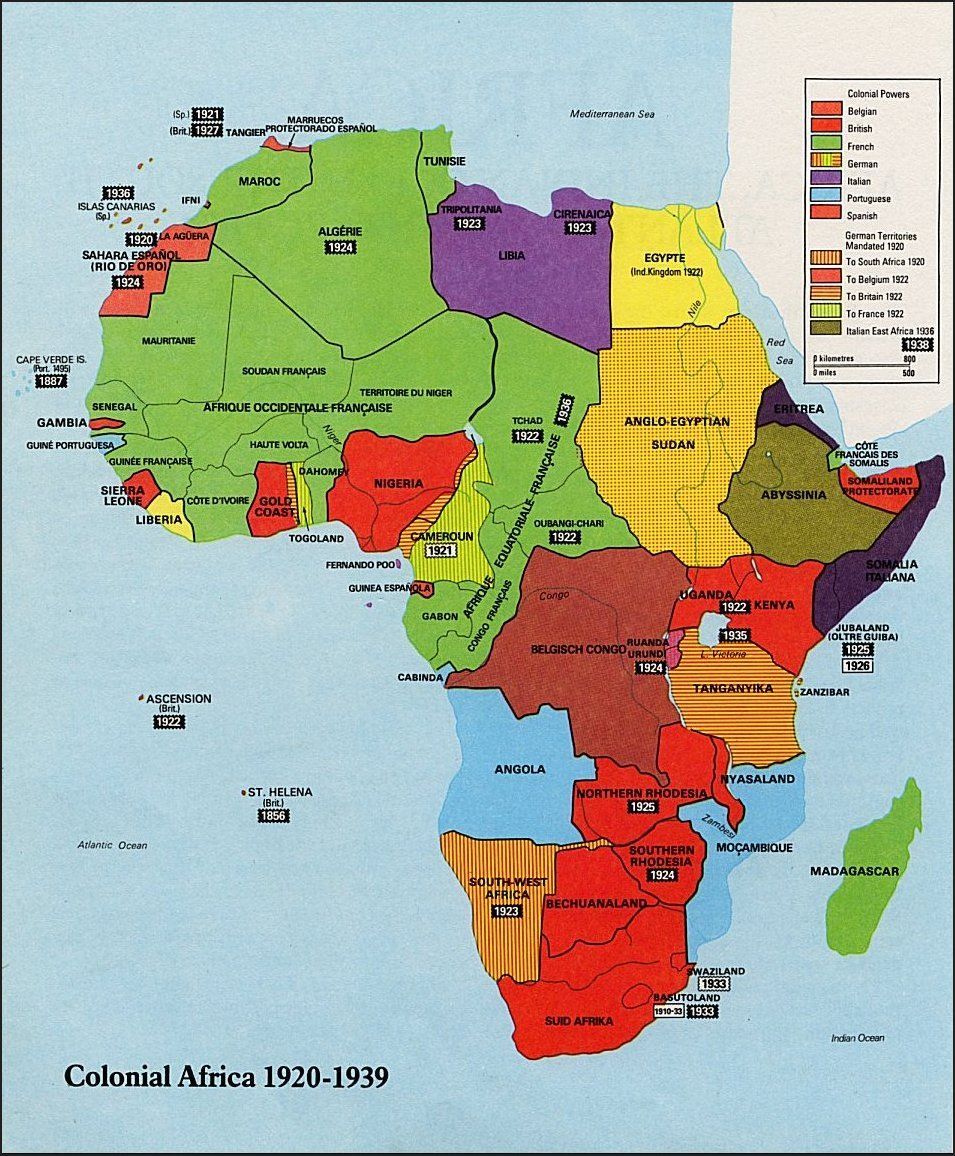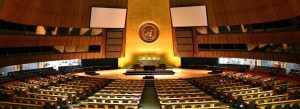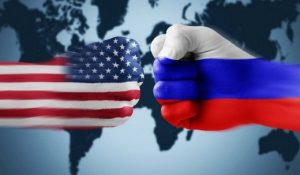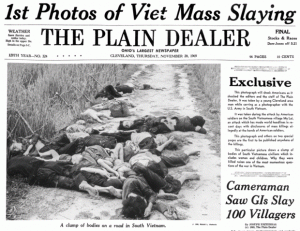
Views: 97
The “Black Continent” of Africa until the end of the eighth decade of the 19th century was not properly known territory, especially its central parts which have been unknown to the Europeans. The West European powers until the 1880s were acquainted mainly with the African littorals and their immediate hinterland. However, what was inside the continent was not exactly known except for the existence of some tribal state organizations in the form of monarchies settled by traditional hunting people.
Before the beginning of the ninth decade of the 19th century, only the littoral parts of the continent of Africa were under direct colonial rule and economic exploitation by the West Europeans: the Portuguese were the first colonists of black Africa. However, France was the first West European power to be deeper involved in conquering bigger parts of (North or Arab) Africa as the Ottoman province of Algeria started to be gradually occupied from 1830 (until 1870). In the territory of the West African littoral, there were some small French and British colonies (Senegal, Sierra Leone, the Gold Coast, Lagos, and Gabon) together with old-established Portuguese colonial territory in Angola. Portugal had as well as in southeastern Africa its big colony of Mozambique up the Zambezi Valley. The Cape colony in southmost Africa at the turn of the 20th century was under the British colonists who were engaged in a rivalry with the local people of both Orange Free State and Transvaal (the territory northward from the Vaal River – today the land around Pretoria and Johannesburg).
The final colonial partition of Africa by the West Europeans started in 1882 with the British occupation of Egypt and finished in 1912 with the Italian occupation of Libya (Ottoman provinces of Cyrenaica, Tripolitania, and Fezzan). Before 1882, apart from French Algeria and Portuguese Angola and Mozambique, the West European powers had possessions in Africa only restricted to many trading posts, military stations, and the islands of Zanzibar and Madagascar. However, within the next two decades, the whole continent of Africa became occupied by and partitioned between the West European great powers. The borders between the colonial territories within the continent have been mainly fixed by a ruler and pencil usually in London, Paris, and Berlin. In around 1900, there were 40 political units in Africa into which the continent was divided. Direct West European rule or control existed in 36 of them. In fact, only Ethiopia, which fought off the Italian colonial attempts in the mid-1880s, and Liberia due to its close financial links with the USA, have been of real independence but not part of the West European colonial empires. In 1912, it was France as the largest beneficiary as controlled nearly 4 million out of Africa’s 11.7 million square miles (in fact, 1/3). French colonies were divided into two big territories: French West Africa and French Equatorial Africa.
One of the focal questions in this matter is: Which factors contributed to such West European imperialistic-colonial politics in Africa (or elsewhere) at the turn of the 20th century? Actually, there were several crucial ingredients:
- The progress of the successful process of industrialization in West Europe established a greater demand for new natural sources, labor force, and markets.
- Colonization was one of several ways outs to resolve contemporary social tensions within the West European societies (for instance, the idea by Joseph Chamberlain who saw colonization as an outlet).
- The geopolitical rivalries between the West European states became transferred outside of Europe, but in Africa in particular. This, in fact, more precisely meant that very often geopolitical incidents between the West European powers, especially their competing traders, in Africa have been achieving in several cases the status of major international crises which could provoke even pan-European wars.
- Initiatives undertaken by the local West European agents, occurring in rapid succession, set in motion the undignified competition for the territorial possession of Africa. It resulted from the backing given by the metropolitan countries to the uncoordinated activities of their citizens and contract men on the local spots. They, in fact, (like Cecil Rhode, for instance) decided that the most favorite way out of big-scale political-military clashes, either with African political units or with other West European states, was simply to occupy some African land before the others would do the same.
In the western territories of the Black Continent of Africa (southward from the Sahara in the wide territories of Sudan) the French took the focal local initiatives. The crucial was the French army attempting to occupy the territory of the Senegal River towards the upper Niger River. In fact, France denied in Europe military revenge against Germany (Prussia) for the defeat of 1870 during the French-Prussian War (1890−1891) when after the war the Germans occupied (the German-speaking historical lands) of Alsace and Lorene (Lotharingia). However, France with German approval sought imperial glory in the dusty savannahs south of the Sahara in Africa (the Sudan region). Nonetheless, such French policy led to the conflict with British imperialism in Gambia and Sierra Leone followed by African states like Samory or al-Hajj Umar. The Anglo-French rivalry existed along the West African littoral in the areas of the Gold Coast (the British penetration started in 1874), Togo (together with the rivalry with Germany), Dahomey, and Yoruba. After the British unilateral decision to invade and occupy Egypt in 1882, French policy toward the UK significantly became deteriorated. Nevertheless, after 1882, there were colonial interventions by other West European states (Germany, Belgium, and Italy) that finally partitioned Africa. Once the partition of the continent started, Africa became colonized within a short time – three decades.
After Henry Morton Stanley’s trans-African journey from East to West in 1874−1877 and especially down the Congo River in Central Africa, the Belgian King Leopold II (1865−1909) took Staley into his personal service. H. M. Stanley in 1879 returned to the region of the Lower Congo River where he laid down the framework of the big private territory as the personal domain of Belgium King Leopold II (Congo Free State) in the basin of the Congo River rich in natural resources. However, both the exploration and political activities of H. M. Stanley stimulated the other West European states to do the same in Africa. For instance, the Italian de Brazza concluded several deals with the local African tribal leaders, and when he returned to Europe, France took up his claims. French troops from Gabon occupied the territory of French Congo which soon became part of the region of the French Equatorial Africa. Of course, such French behavior immediately provoked responses from the UK and Portugal in the region but due to Germany, this came to nothing. In other words, Berlin bought off French thought of military revenge over the territories lost to Germany during the Franco-German War of 1870−1871 after which Prussia united Germany by allowing France to have free hands in Africa. At the same time, Germany was blackmailing the UK over the British occupation of Egypt in 1882.
United Germany (the Second German Empire) entered the struggle for Africa by occupying lands in four widely separated regions: Togo (between the British and French possessions), the Cameroons in 1884 (between British Nigeria, French Equatorial Africa, and Portuguese Rio Muni), German South West Africa (between British and Portuguese colonies), and German East Africa since 1885 when Dar es Salaam was occupied (between Belgian, British, and Portuguese possessions). Therefore, the German African colonies were like the wedges between the colonies of other West European imperialistic powers. Consequently, both French and German colonial activities in West Africa led London to be more active in the region particularly to secure the territory which later became known as Nigeria (rich in natural oil). However, the far interior of West Africa was left to the French colonists who by the end of the 19th century swept right across the region of West Sudan (known as French Sudan).
All West European great powers involved in the competition for the partition of Africa had wide-reaching geopolitical and economic designs. For instance, Germany planned to occupy the Portuguese possessions and at least part of the Congo. In such a way, Berlin would create a great and rich empire in West and Central Africa. Paris had the same imperial ambitions in French West Africa stretching from the Mediterranean Sea in the North up to the Congo River in the South. For the reason to counter French and German penetration deeper into Africa, London pushed its expansionist policies from three directions: 1) British colonists (Cecil Rhode’s Company “Pioneer Column” in 1890) from Cape Colony northward through Bechuana territory (later British Bechuanaland) and Orange Free State via Transvaal up to the Lake Tanganyika (establishing provinces of Southern Rhodesia and Northern Rhodesia); 2) Imperial British East African Company from Mombasa establishing British East Africa (later Kenya) up to Lake Victoria (Uganda was occupied in 1893; and 3) From Egypt via Sudan up to Gondokoro where they met the British troops from Uganda. Between Egypt and Uganda, it was established Anglo-Egyptian Sudan (Sudan-Anglo-Egyptian Condominium) in 1899. The idea was to form a continuous strip of British colonial possessions from Alexandria in Egypt to Cape Town in Cape Colony (future South Africa). However, between northern and southern British possessions on this imagined continuous strip existed German East Africa and Belgian Congo. It is important to notice that such different geopolitical and economic designs brought the UK and France face-to-face at Fashoda (today in South Sudan) in 1898 (the Fashoda Incident, September 18th,) and almost led to direct military clashes and probably war between the two states as both wanted to connect their disparate colonial possessions (French Equatorial Africa with French Somaliland vs British Anglo-Egyptian Sudan with Uganda).
The German colonies in South-East and South-West Africa had a direct impetus to the revival of the Portuguese imperialistic ambitions in the continent. At the same time, the real threat of Afrikaner (South African ethnic group descended predominantly from Duch settlers first arriving at the Cape of Hope in 1652) expansion led to British penetration into the interior of Central Africa up to the German colony of German East Africa. These conquered territories became later known as Rhodesia, Zambia, and Malawi. The driving force behind such British colonial expansionism toward Central Africa was industrialist and politician Cecil Rhodes. Similarly, German colonization in East Africa (Tanganyika or German East Africa) produced a British counter-policy when the UK PM, Lord Salisbury, laid claim to the territories around the Great Lakes (later Uganda) and the intervening territory down to the littoral (British East Africa, later Kenya). After 1882, the British colonial power in Egypt was drawn from that province to intervene in the affairs of Sudan, which had rebelled against Egypt in 1881 under the Islamic religious leader, the Mahdi (Mahdist State in Sudan, 1881−1898).
Simultaneously, French colonial success in West Africa after 1871 (occupation of Gabon in the western Congo, the conquest of the ancient state of Dahomey in 1893, and the drive towards Lake Chad in the three directions) forced the UK to mobilize the resources of the Royal Niger Company for the purpose to occupy the emirates of Nupe and Ilorin, and to go to several military clashes with both the French colonial forces and local African political units within its trading zone. This French-British colonial tension reached its peak in 1898, when the French Commandant Marchand, after a two-year of marching from Gabon, almost clashed with the British troops at Fashoda on the White Nile River. London and Paris on this occasion only just averted open war.
After the British occupation of Egypt in 1882, the partition of Africa, which started as a fairly peaceful process, now began to cause more and more bloodshed. The Italians invaded Ethiopia from Italian Somalia (occupied in 1889−1892) and Eritrea in 1895 but the Ethiopian troops inflicted a heavy defeat on the Italians at Adowa in 1896. In 1898−1899, around 20.000 Sudanese died during the British occupation of the Mahdist State. Similarly, the British settler troops led by Cecil Rhode have been engaged in serious armed clashes with Matabele and Mashona as they moved northward from Cape Colony. In general, the West European white expedition-colonial troops, especially the British, came usually to rely increasingly on the repeating rifle (repeater) and the Maxim gun (constructed in 1884).
The colonial conflict in South Africa reached its peak during the 1899−1902 Boer War in which London with great difficulty finally won control of the territory of Transvaal with rich gold mines (discovered in 1886) and occupied the Afrikaner republics. It was in 1896 when the military clashes started with the unsuccessful Jameson Raid which significantly destroyed the personal political influence of Cecil Rhode but not his policy of colonization as it was supported and continued by Chamberlain (the Colonial Secretary of the UK) and Milner (the High Commissioner in Cape Town). As a matter of fact, the African people on the one hand in many cases bitterly have been opposing the colonial policies of the West European great powers but on the other hand, they never became united for the purpose to offer stronger resistance being at the same time easily dealt with piecemeal.
At the turn of the 20th century, among a few African states still having a loose independence, Libya became invaded by Italy in 1911 (the Italo-Ottoman War of 1911−1912), and Morocco survived until 1912 before becoming divided between France and Spain (Spanish Sahara, today West Sahara including Spanish colony of Rio de Oro established 1885). In the rest of Africa, except Ethiopia and Liberia, some of the West European colonial flags were flying.
In conclusion, despite the rapidity and apparent ease of the final partition, almost everywhere West European colonizers met resistance from the local population to their brutal invasion of the “Black Continent” from 1882 to 1912. However, much of the resistance was dealt with piecemeal and often using other African tribes as allies but some resistance was much more serious, such as that of Samori to the French colonizers in West Africa in 1887−1896 while Ethiopia and Liberia experienced independence. Nevertheless, in all successful colonization cases, the policy of West Europeans was to divide and rule (divide et impera). The West Europeans, however, had an overwhelming technical superiority of military hardware.
Ex-University Professor
Research Fellow at Centre for Geostrategic Studies
Belgrade, Serbia
www.geostrategy.rs
sotirovic1967@gmail.com © Vladislav B. Sotirovic 2023
Personal disclaimer: The author writes for this publication in a private capacity which is unrepresentative of anyone or any organization except for his own personal views. Nothing written by the author should ever be conflated with the editorial views or official positions of any other media outlet or institution.
Originally published on August 20th, 2023.
Origins of images: Facebook, Twitter, Wikimedia, Wikipedia, Flickr, Google, Imageinjection, Public Domain & Pinterest.
Read our Disclaimer/Legal Statement!
Donate to Support Us
We would like to ask you to consider a small donation to help our team keep working. We accept no advertising and rely only on you, our readers, to keep us digging the truth on history, global politics, and international relations.
FOLLOW US ON OUR SOCIAL PLATFORMS



